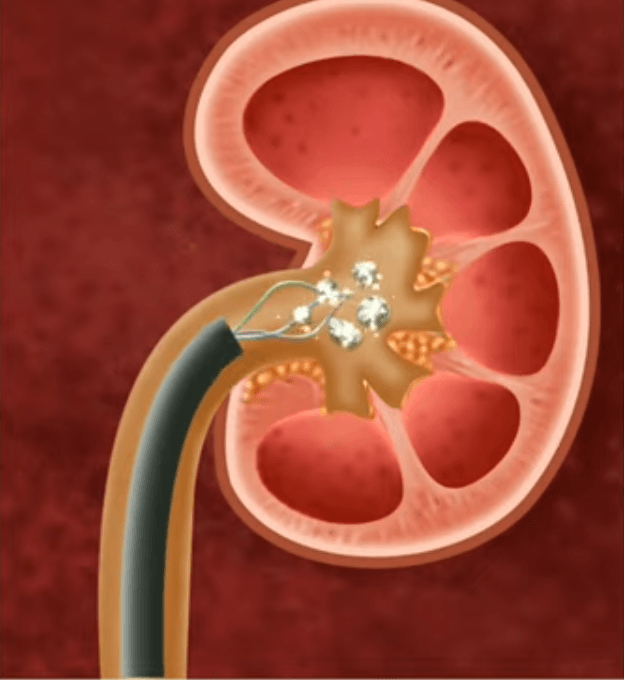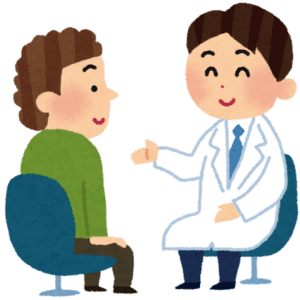Identifying the type of kidney stone you have is crucial for effective treatment and reducing the risk of future occurrences. Here’s a breakdown of the main types of kidney stones:
2. Struvite Stones: Struvite stones often develop as a result of urinary tract infections (UTIs). These stones can grow rapidly and frequently remain asymptomatic, making them particularly insidious.
3. Uric Acid Stones: Uric acid stones commonly arise when the body loses excessive water due to conditions like chronic diarrhea or when protein consumption is too high. Additionally, genetic factors such as diabetes can increase the likelihood of developing these stones.
4. Cystine Stones: Cystine stones are linked to a hereditary condition known as cystinuria, where the kidneys excrete excessive amounts of the amino acid cystine. Individuals with this genetic disorder should be aware of their increased risk for developing kidney stones and consider regular monitoring.

1. What is Kidney Stone Laser Treatment?
Laser treatment for kidney stones has revolutionized the way medical professionals address this painful condition. This advanced procedure begins when a qualified urologist performs laser treatment for kidney stones using a specialized instrument called a ureteroscope. During the laser treatment for kidney stones, the medical team inserts this thin, flexible scope through the urinary tract to reach the stone's location.
2. The procedure involves several key steps:
First, the ureteroscope guides a precise laser fiber to the kidney stone
Next, the laser treatment breaks kidney stones into tiny, passable fragments
Finally, these fragments naturally exit the body through urination
3. Why Choose Laser Treatment for Kidney Stones?
✥ No external incisions required ✥ Reduced risk of complications and infections
✥ Minimal recovery time compared to traditional surgery
✥ Higher precision in targeting stones of various sizes
✥ Effective for both small and large kidney stones
This minimally invasive approach has become the gold standard for treating kidney stones, especially when compared to traditional surgical methods.

The cost of laser treatment for kidney stones can vary significantly from one patient to another due to several influencing factors. When considering insurance coverage for laser treatment for kidney stones, it’s important to note that coverage can differ based on the specific insurance plan and provider.
DoctorGii’s dedicated insurance team helps patients understand their coverage details and potential out-of-pocket expenses for kidney stone treatment, eliminating the hassle of dealing directly with insurance companies
Key elements that affect the overall cost of laser kidney stone surgery include:
1. Surgeon’s Fees: The expertise and experience of the urologist performing the procedure can impact costs.
2. Facility Charges: The fee for the medical facility where the surgery takes place also contributes to the total expense.
3. Anesthesia Costs: Anesthesia is an essential component of the procedure and incurs additional fees.
4. Preoperative and Postoperative Care: Comprehensive care before and after surgery can add to the overall costs.
5. Medical Supplies and Equipment: The materials and tools used during the procedure are factored into the price.
6. Medication Expenses: Costs for medications prescribed for pain management or infection prevention after the procedure can also contribute to overall expenses.
7. Technology Utilized: Advanced surgical technology can influence the cost of laser treatment.
8. Diagnostic Procedures: Additional tests required before or after the procedure may also affect the total cost.

7 Key Benefits of Laser Surgery for Kidney Stones
Laser surgery for kidney stones has emerged as a leading solution, offering numerous advantages over traditional methods. Let’s explore why this advanced treatment is becoming the preferred choice for both doctors and patients.
What are Kidney Stones?
Kidney stones are small, hard pieces of minerals and salts that form inside your kidneys. At their smallest, they could be the size of a grain of sand; at their largest, as big as a golf ball! There are several types of kidney stones:
Calcium Stones: Most common, composed of calcium.
Struvite stones are caused by infections.
Uric Acid Stones: Form when the body loses too much fluid.
Cystine Stones: Extremely rare; associated with a genetic disorder.
What are the causes of kidney stones and what are symptoms?
Kidney stones occur when your urine doesn’t have enough water to dissolve the minerals inside. Some common causes of this include failure to drink adequate amounts of water, consuming too much salt, and too much calcium in the diet. Symptoms of it can vary but may include:
Sudden sharp chest or back pain
Feeling like you need to pee a lot
Blood in your urine
Feeling that your stomach turns
How are kidney stones diagnosed?
Doctors may ask you to do tests like X-rays, CT scans, or ultrasounds to determine if a kidney stone is present. In order to further determine what kind of stone it is, you might have to provide your urine or blood sample.
What if We Do Not Treat Kidney Stones?
Untreated, kidney stones can lead to severe complications, such as infection, blockage of the urinary tract, or damage to the kidney.
When to Seek Medical Help?
If you experience sharp pain in the back or side, blood in your urine, or you are unable to urinate, seek medical attention immediately.
Prevention of kidney stones is easy:
Drink enough water every day.
Do not eat too much salt or foods rich in calcium such as spinach.
Eat a balanced diet with fruits and vegetables.
How Do You Treat Kidney Stones?
Small Stones: Often, drinking lots of water helps pass the stone naturally. Pain medicine can help too.
The medium-sized stones are sometimes broken by shock waves applied by the doctors.
Medium or Large stones: Surgery might be required to take out large stones.
Myth 1: Kidney stones occur only in adults.
Fact: Kidney stones can afflict anyone, even young children.
Myth 2: Drinking soda causes kidney stones.
Fact: While drinking too much soda isn’t healthy, it’s not the main cause of kidney stones.
Myth 3: Once you get a kidney stone, you’re a lifetime sufferer.
Fact: Changes in diet and increased hydration can help prevent new stones from forming.
Myth 4: Dairy consumption leads to kidney stones.
Fact: It’s not the dairy itself but the calcium found in some specific foods that triggers stone formation. This should be balanced, therefore.
Myth 5: Kidney stones only occur during summer.
Fact: Kidney stones can happen at any time, but during the summer, dehydration can increase this risk.
Myth 6: You’ll always feel pain with kidney stones.
Fact: Some kidney stones are small and don’t cause any pain.
Myth 7: Once a stone passes, the problem is solved.
Reality: Passing a stone is good, but you have to take measures to prevent future stones.
Myth 8: Drinking beer helps pass kidney stones.
Fact: Drinking alcohol doesn’t help; water is the best way to flush out stones.
Your Trusted Companion For Healthy Living.
Powered by Exotikare HealthTech Private Limited
© 2024 All rights reserved